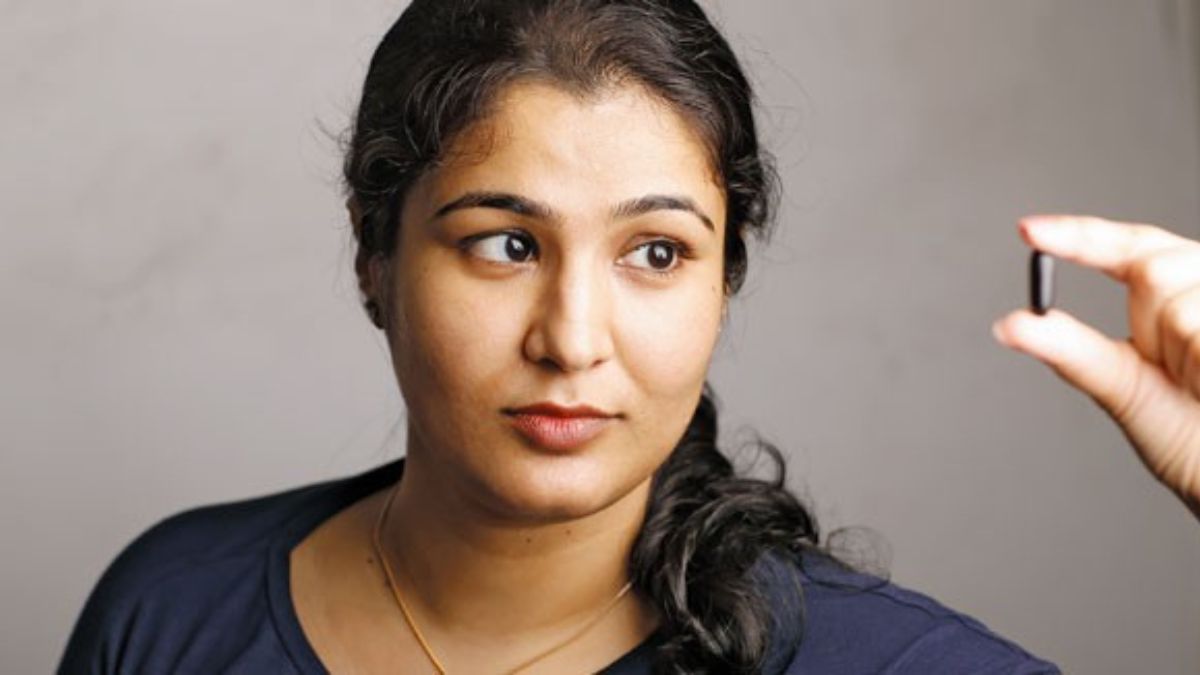Do magnesium supplements really work for sleep, anxiety, and period cramps?

An Instagram reel by doctor and influencer Yokesh Arul has brought magnesium supplements into the limelight, with claims of transformative health benefits. In the video, Arul—who has over 1 million followers on the platform, shares his personal experience of taking magnesium for 21 days.
“I took magnesium for 21 days and it literally changed my body,” he says at the start of the reel. Citing recent stress and fatigue despite maintaining a healthy diet, Arul claims that magnesium supplementation significantly improved his energy levels, calmness, and sleep quality. “Like, sometimes I used to feel like I can't work without tea or coffee because when your body is deficient in magnesium, it can't make ATP properly,” he explains.
He adds that magnesium blood tests are not always reliable since only 1% of magnesium is found in the blood. After starting supplementation, he says, “I felt more energetic, calm, and my favourite part is the sleep. It literally made a difference not only for me but even for my patients—and I’ve stopped waking up tired.”
But, is Magnesium really beneficial for period cramps, stress, anxiety and quality sleep?
According to a study involving 60 students, taking 300 mg of magnesium daily helped reduce bloating, depression, and anxiety in college students experiencing premenstrual syndrome (PMS), compared to a control group.
Another research suggests magnesium supplements may relieve PMS symptoms such as abdominal cramps, tiredness, irritability, and even menstrual migraines—possibly because magnesium levels fluctuate during the menstrual cycle, and deficiencies may worsen symptoms.
In one review of older adults with insomnia, researchers found that magnesium supplements reduced the time it took to fall asleep by an average of 17 minutes. Another study involving over 3,000 Iranian adults found that higher magnesium intake was associated with a lower risk of both depression and anxiety. In a 6-week study, participants who took 248 mg of magnesium daily reported a significant reduction in anxiety symptoms.
Dr Anjana Bhan, Endocrinologist at Max Hospital, Saket, says magnesium’s role in improving period cramps, sleep, stress, and anxiety is not yet well-established. “The studies we have are mostly observational or anecdotal. They are not large-scale, well-authenticated trials backed by solid, proper data,” she explains.
According to her, these observational studies do show some signals that magnesium may improve sleep patterns and duration, reduce anxiety and stress, and ease menstrual cramps. “Magnesium relaxes muscles and calms the nervous system. It is part of many biological processes in the body and plays a role in several enzymes. Some people with insomnia feel it acts like a natural sleeping aid, possibly by helping regulate melatonin,” she says. However, she cautions that this effect is not universal.
For most healthy individuals with a balanced diet, additional supplementation is unnecessary. “People who eat natural sources like nuts, green leafy vegetables, bananas, and seeds usually get enough magnesium,” Dr Bhan notes. She adds that supplements may be needed in certain cases, such as for people with gastrointestinal problems (ulcers, chronic diarrhoea, irritable bowel syndrome), alcohol dependence, or possibly diabetes—though she points out that “no large studies have been done to confirm the need in diabetics.”
“If somebody has muscle or menstrual cramps that do not improve with antispasmodics, a trial of magnesium may be considered,” she says, “but it may or may not help since large-scale evidence is lacking.”
Dr Bhan also warns against overdose of magnesium intake: “Taking too much magnesium is not good—it can cause cardiac problems, potassium imbalance, worsen muscle cramps, or even cause numbness. Always consult a doctor before starting magnesium supplements.”
So, you might or might not benefit from magnesium supplements, but always consult a qualified doctor first.
This story is done in collaboration with First Check, which is the health journalism vertical of DataLEADS.
Health